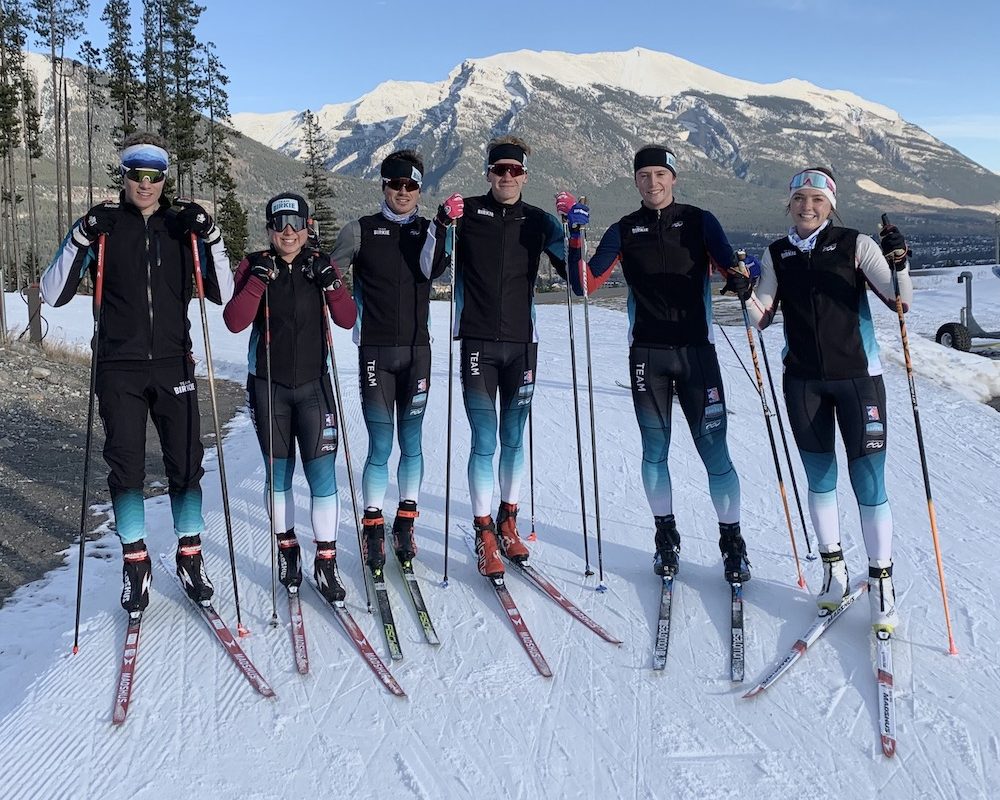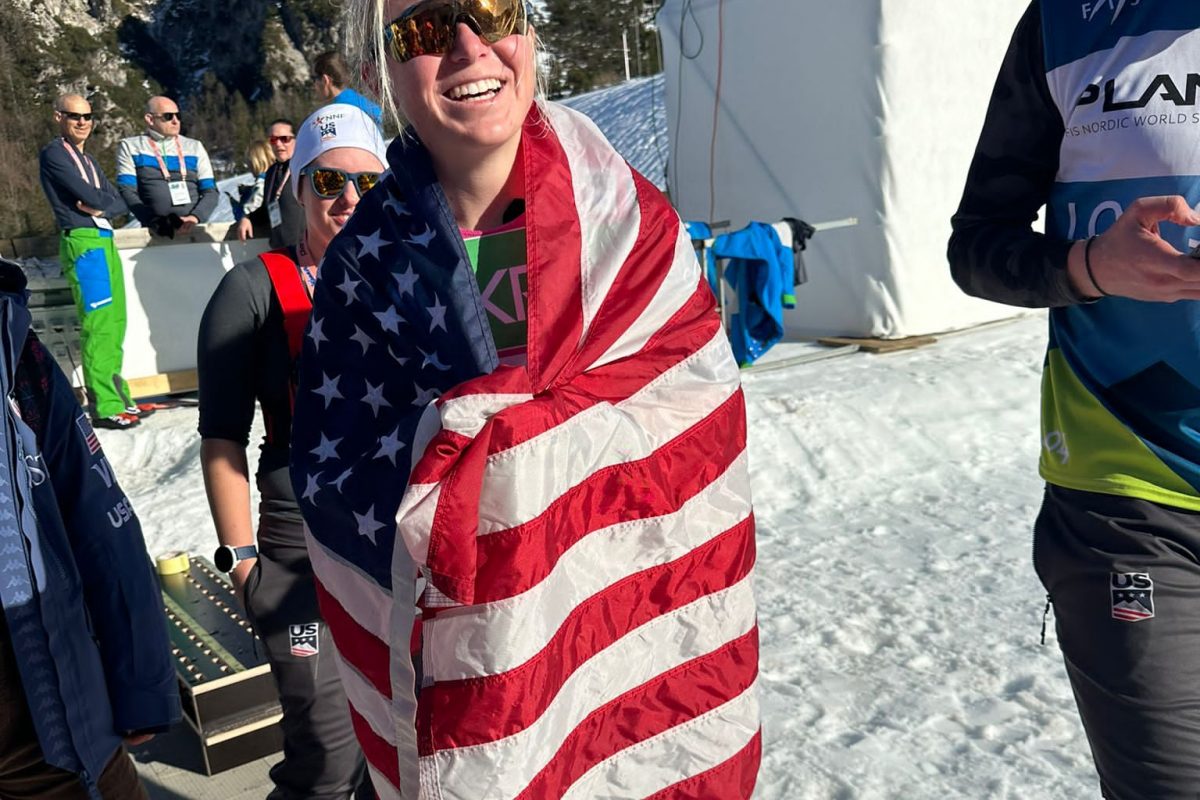 This World Cup coverage is made possible through the generous support of Marty and Kathy Hall and A Hall Mark of Excellence Award. To learn more about A Hall Mark of Excellence Award, or to learn how you can support FasterSkier’s coverage, please contact info@fasterskier.com.
This World Cup coverage is made possible through the generous support of Marty and Kathy Hall and A Hall Mark of Excellence Award. To learn more about A Hall Mark of Excellence Award, or to learn how you can support FasterSkier’s coverage, please contact info@fasterskier.com.
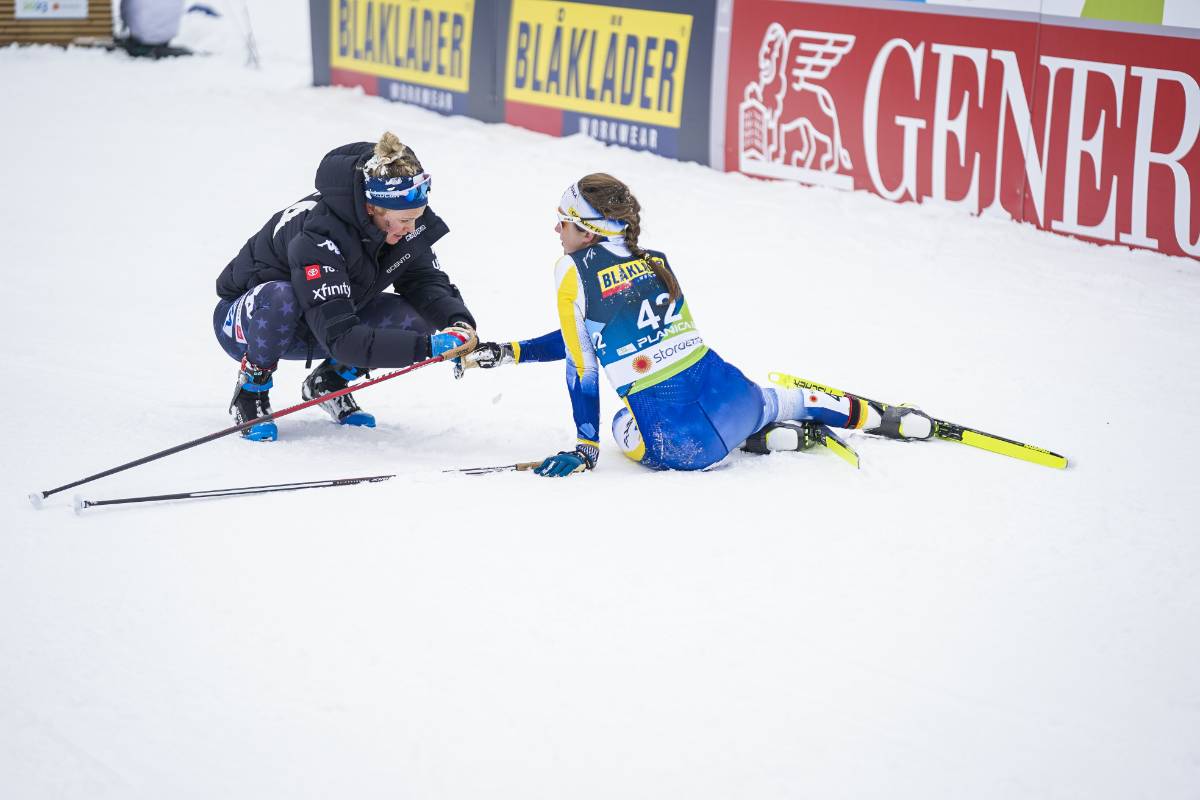
PLANICA, SLOVENIA — Rita White, Oumar Cherif and Anna Dehler arrived in Slovenia from Minnesota on Monday.
The next day, they headed up to the World Ski Championships competition venue at Planica, decked out in stars and stripes, to cheer on one of their childhood cross-country ski racing rivals, Jessie Diggins.
The Minnesotans, it’s safe to say, got an unexpectedly warm reception that happened to coincide with Diggins winning a gold medal in the 10-kilometer freestyle race.
European fans asked to trade for their Team USA mittens. Norway’s national broadcaster, NRK, wanted an interview, and a separate shot of them squinting at the scoreboard was beamed out on the live international video feed. Dozens upon dozens of people stopped them to celebrate Diggins’ victory.
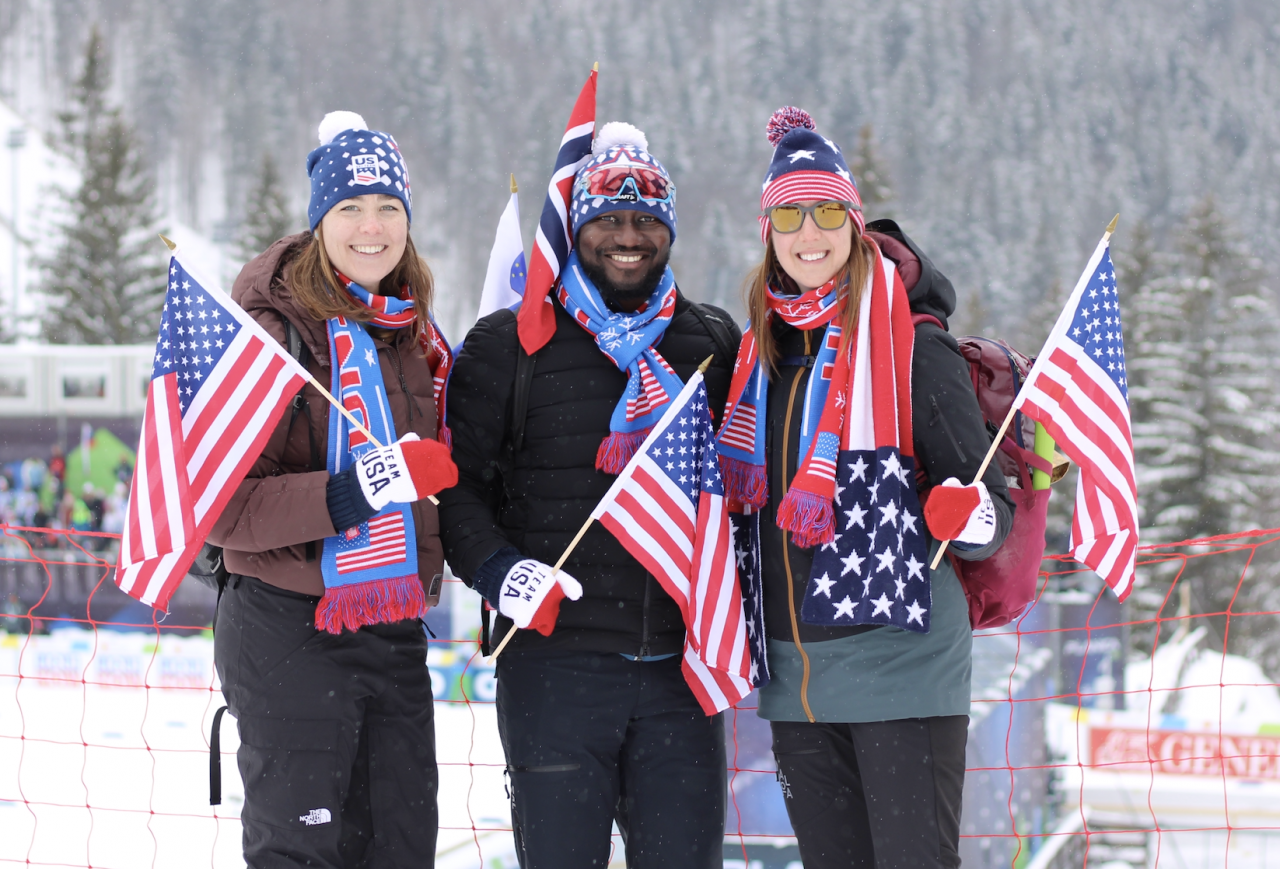
“It was, like, constant hugs,” said White, 34. “It was amazing that because of Jessie, people were liking us.”
The adulation the trio experienced — ”we felt like adopted Norwegians,” Cherif said — was part of a surge of affection this week for Diggins, her American teammates and anyone adjacent to them in Planica.
Foreign fans brandished American flags during Thursday’s relay race, when Diggins helped lead the U.S. team to a fifth place finish. On social media, Diggins’ Scandinavian rivals publicly lauded her for beating them earlier this week. And her teammates and coaches received a nonstop stream of praise from athletes, race officials and fans.
“Today, I got more congratulations before the race even started than I have for any race this whole season,” American Ben Ogden said in an interview Wednesday, the day after Diggins’ gold. “I’m like, ‘It’s not like I was out there fighting yesterday.’ But when Jessie wins, we all win. And we all certainly feel that.”
Diggins’ victory here seemed to cement the U.S. team’s status as a favorite among both fans and fellow competitors — a status that’s developed over years of struggle on the unforgiving European World Cup circuit.
Unlike in many other international forums, the Americans are bona fide underdogs here, vying for podiums against some larger and better-funded teams.
And both athletes and spectators say they connect deeply with Diggins, who puts her triumphs, struggles and suffering on public display in a sport where some other stars can be guarded and distant. By contrast, earlier this year, one of superstar Johannes Høsflot Klæbo’s own Norwegian teammates criticized him for barely cracking a smile after winning a race.
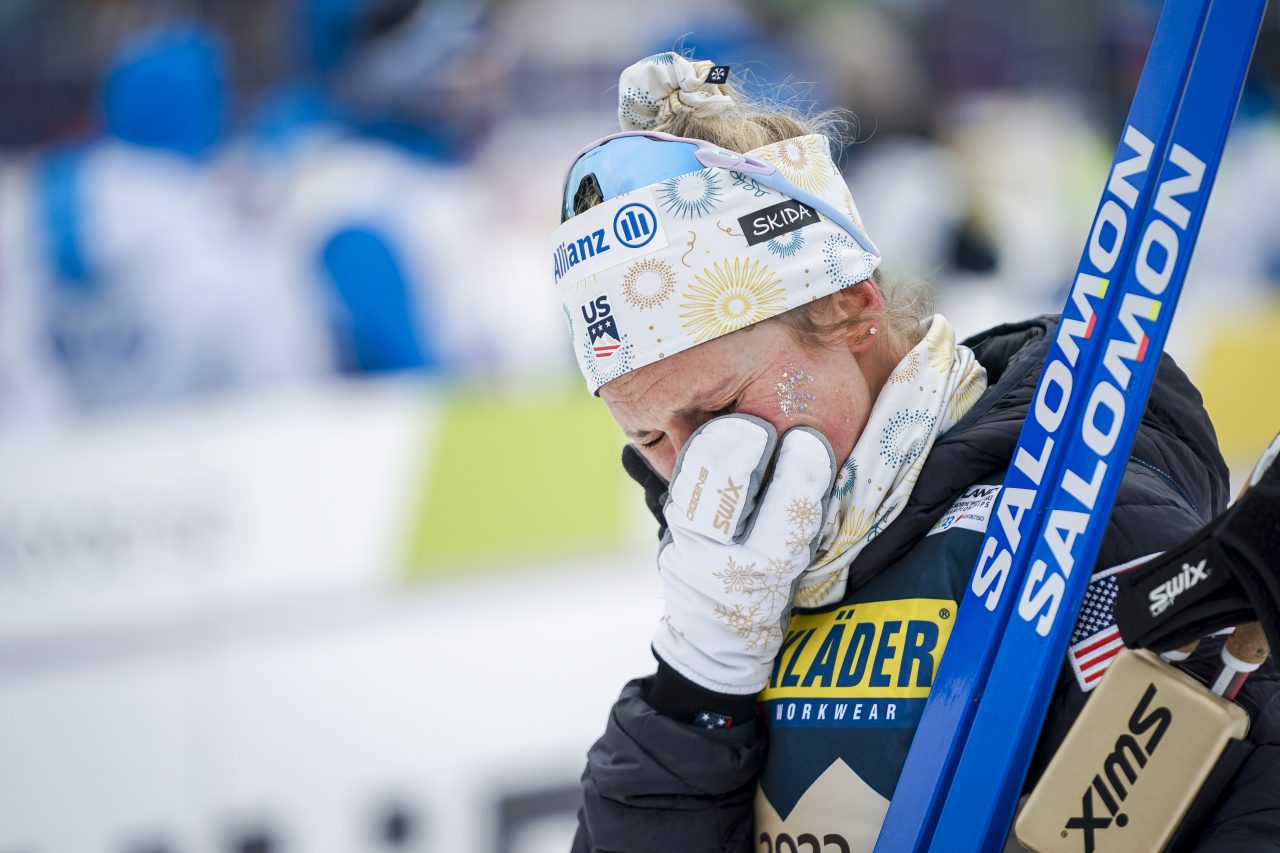
In both her races this week — like in most of her other finishes on the racing circuit — Diggins collapsed in an exhausted heap at the finish line, writhing in pain and heaving as she tried to catch her breath. On Tuesday, once she got up and discovered she’d won gold, she started crying.
“She has ups and downs, and we all do,” said Norwegian star Anne Kjersti Kalvå. “And she shows it for everyone.”
Diggins, asked about the attention, sounded a little bemused, speculating that it’s because of her “non-threatening, glittery personality.” But she also acknowledged that fans and other athletes relate to her.
“I wear my emotions and my flaws on my sleeve. And I think maybe that gives other people permission to cry when they’re happy after a race, or admit that this was a hard day,” Diggins said in an interview after finishing Thursday’s relay. “People have seen me succeed. But they’ve also seen me fail, very publicly, in front of the world. And I think that makes people feel like it’s okay to be human.”
One thing that’s very clear in Slovenia is that Diggins’ appeal is pretty much universal. Mention her name, or your American heritage, and fans from around the world light up.
Arnstein Moen, a Norwegian who was waving an American flag during Thursday’s relay: “Everybody from Norway loves Jessie Diggins. She is a hero for us.”
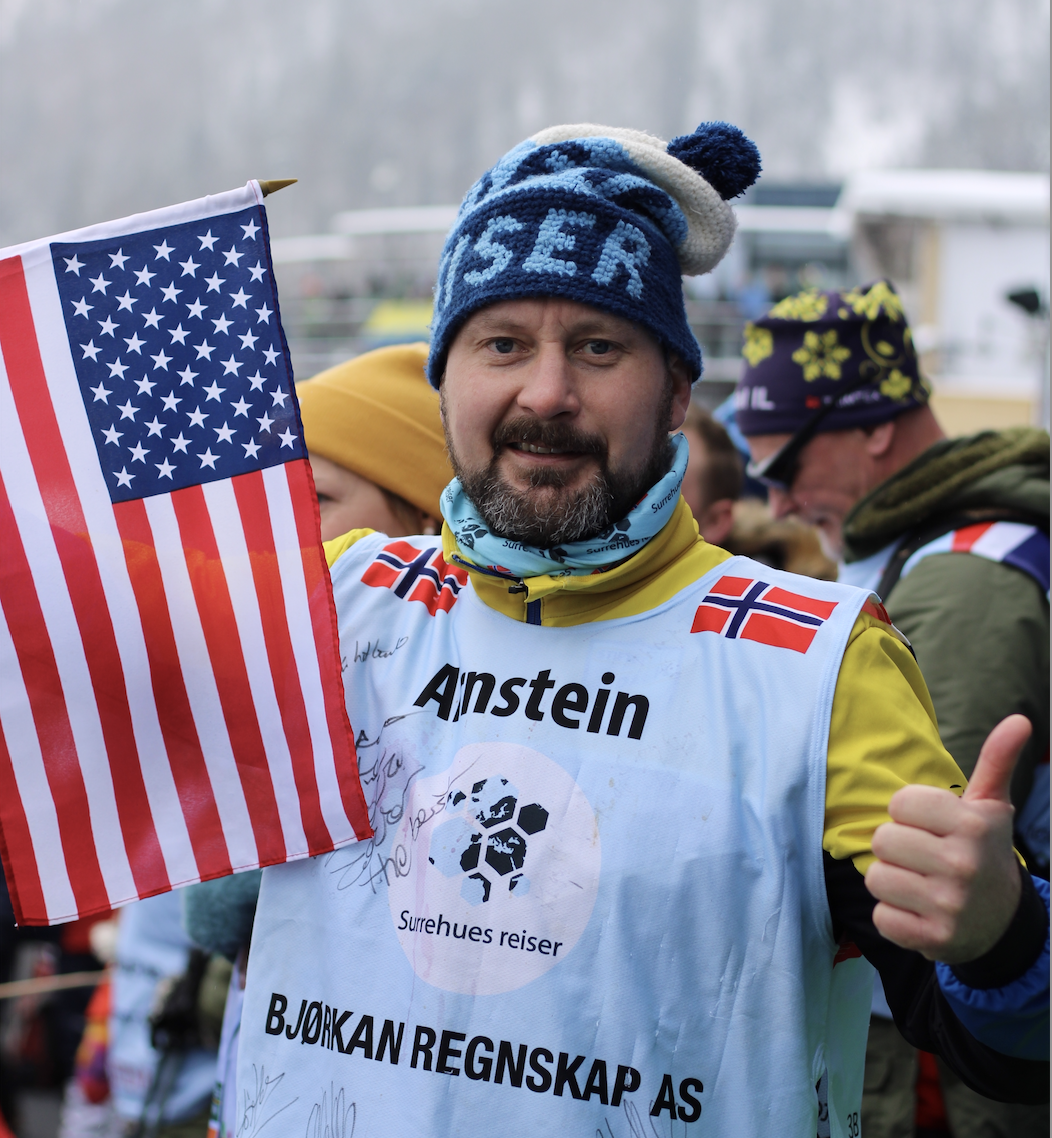
Jens Wagner, a German fan: “In Germany, the commentators, they all say, ‘She’s so great. She’s so shiny. She’s so sunny,’” he said. “She’s very sympathetic, and everyone loves her.”
Astrid Øyre Slind, a Norwegian skier who’s won two medals at World Championships: “What’s not to like about her? She’s, like, always happy. She’s racing her heart out every time. She’s the best example of being an athlete.”
Slind added: “Everybody loves that she’s finally a world champion. It’s totally deserved.”
Even when Diggins struggled earlier this year, she still managed to win people over, according to Martin Johnsrud Sundby, a retired Norwegian Olympic medalist who’s now working as a TV commentator in Slovenia.
At the grueling Tour de Ski stage race, Diggins finished poorly in a string of events. She and her coaches blamed mistakes with ski waxing, but some European experts and coaches from other teams — Sundby among them — suggested that she was out of shape and should drop out.
When reporters asked her about those remarks, Diggins dismissed them, saying, sarcastically, that it was nice that people had her best interests in mind.
“She didn’t want to hear about that stuff,” Sundby said in an interview this week. “It’s always good when you have this kind of person making a statement. Saying, ‘No, I don’t buy what the experts say. For me, this is how I want to do it.’ I loved it.”
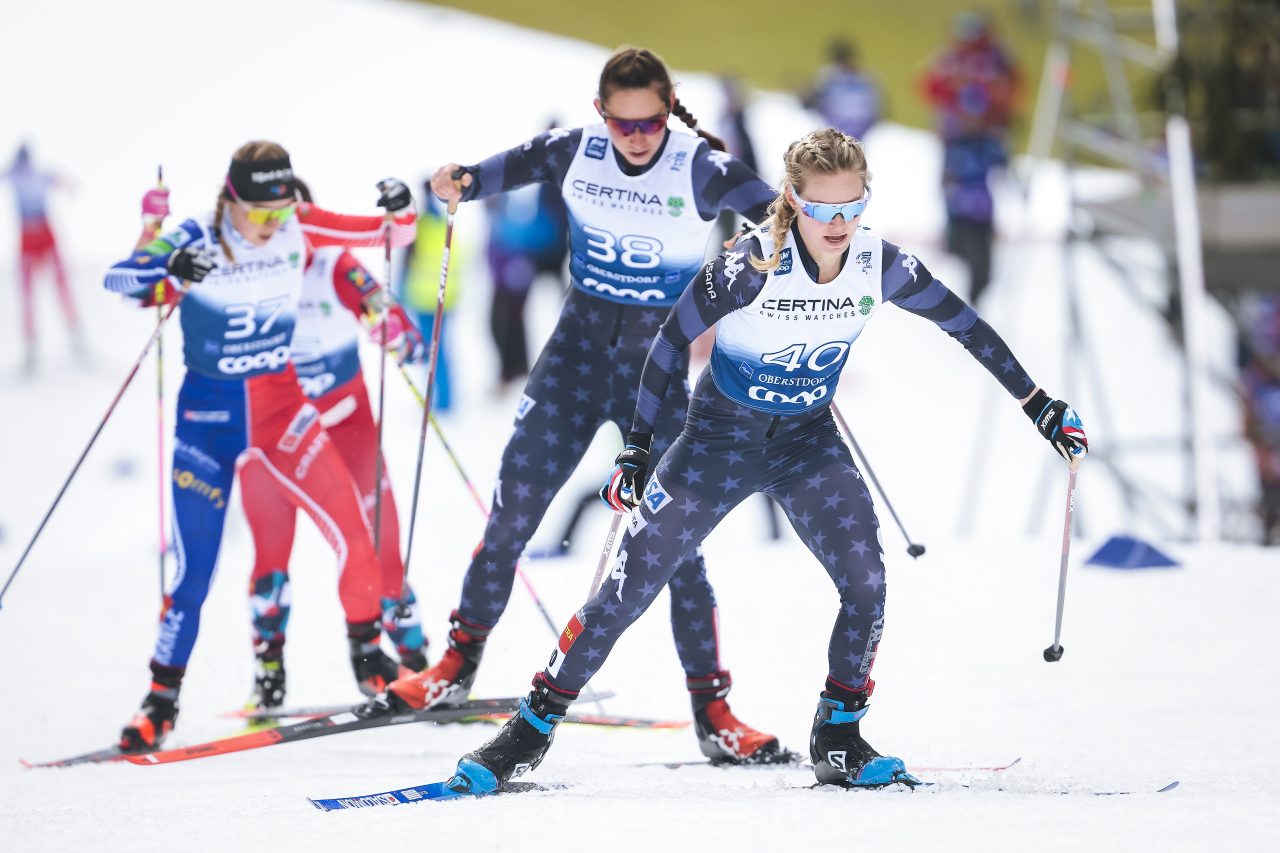
Sundby also made a point echoed by several others at World Championships: Diggins represents “the opposite” of Scandinavian dominance on the international cross-country skiing circuit. Norwegian men, Sundby noted, took the top four places in Wednesday’s individual World Championships race, and five of the top six places.
“Diggins is interesting. She’s America. She makes this, actually, a world sport,” Sundby said. Norway, he added, is “really good in cross-country skiing. But it’s not good to be good in cross-country skiing if nobody else is good.”
Finnish skier Jasmi Joensuu put it more succinctly: “She’s great. And I really enjoy that someone else wins than Swedish girls.”
Diggins’ success, and her broad base of support, has helped create something of a safe space in Europe for her American teammates and American fans — groups that, in other settings, might not fully embrace the idea of wandering around a foreign country decked out in stars and stripes.
“Like, maybe in the airport, people would think of Americans as big trucks, big roads, big politics,” said Gus Schumacher, a member of the U.S. men’s team in Slovenia. “Here, people just recognize us as a smaller nation that’s really doing the best with what we have.”
Chris Grover, the head of the U.S. team here, summed up the Americans’ way with an anecdote. About a decade ago, at the start of Diggins’ career, he said, he remembers watching the start of sprint races on the live television feed.
As the camera panned across different athletes’ faces, Grover said, the Europeans were stony, “slamming their poles and looking kind of pissed off.” When it got to the Americans — like Diggins and retired Olympic gold medalist Kikkan Randall — “they’d be smiling and waving.”
“I was thinking to myself, ‘Hey, women, you’ve got to take this more seriously,’” Grover said. “But I think actually what was happening was that they were starting to build a fan base, and this public persona. Europeans were like, ‘That’s a team that’s having fun and enjoying the process.’”
The other side of that, he added, is the way that Diggins experiences pain so consistently and publicly.
“You see the suffering. You see the tempo, pushing so, so hard,” Grover said. “I think people really have an intrinsic respect for that.”
Nathaniel Herz
Nat Herz is an Alaska-based journalist who moonlights for FasterSkier as an occasional reporter and podcast host. He was FasterSkier's full-time reporter in 2010 and 2011.


